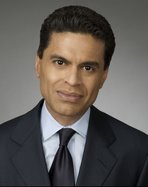European Russophobia and Europe’s Rejection of Peace: A Two-Century Failure
Europe has repeatedly rejected peace with Russia at moments when a negotiated settlement was available, and those rejections have proven profoundly self-defeating. Read more
 Fareed Zakaria
Fareed Zakaria
Henry Kissinger has noted that in his adult lifetime, the United States has fought five major wars and began each one with great enthusiasm and public support. But in each of them, Americans soon began to ask, “How quickly can you withdraw?” In three of these conflicts, he says, the United States withdrew its forces unilaterally. Today we are watching a similarly powerful, and understandable, enthusiasm for an expanded war against the Islamic State. Let us make sure we understand what it would entail not just to start it but also to end it.
One place to learn some lessons might be from a strategy that has been relatively successful: the war against al-Qaeda. As Peter Bergen noted in 2012, a year after Osama bin Laden’s death, the group’s leadership had been destroyed, its resources had disappeared and its support among the Arab public had plummeted. It has not launched an attack on Western soil since the London bombings 10 years ago.
The picture did not always look like that. After 9/11, officials and experts spoke of al-Qaeda with the awe and fear they now reserve for the Islamic State. Once the United States and its allies began battling the group, it inspired or directed several attacks across the globe, including the bloodiest in the West since 9/11, the 2004 Madrid train bombings, which killed 191 people. But those attacks did not mean al-Qaeda was “winning” the war on terrorism any more than the attacks in Paris last week mean that the Islamic State is winning. In fact, it’s possible that as the Islamic State loses territory on the ground, it is resorting to terrorism abroad.
What explains the success against al-Qaeda? Many experts point to the genuinely global counterterrorism operations, especially the sharing of intelligence. Others note that the group overplayed its hand in Iraq.
In one of the best books on the topic, “Hunting in the Shadows,” Seth Jones concludes that whenever the United States adopted a “light-footprint strategy” — Special Operations forces, covert intelligence and law enforcement — it did well. Whenever the United States and its allies sent troops into Muslim countries, he notes, “al-Qaeda has benefited through increased radicalization and additional recruits.” This is why from the start, the Islamic State has sought to bait Western countries into sending troops to Syria.
Defeating the group militarily would not be difficult. But to keep it defeated, someone would have to rule its territories or else it, or a variant, would just come back. The Islamic State draws its support from Sunnis in Iraq and Syria who feel persecuted by the non-Sunni governments in both countries. In addition, the group has created a functioning state that provides some measure of stability for a population that has been battered over the past decade.